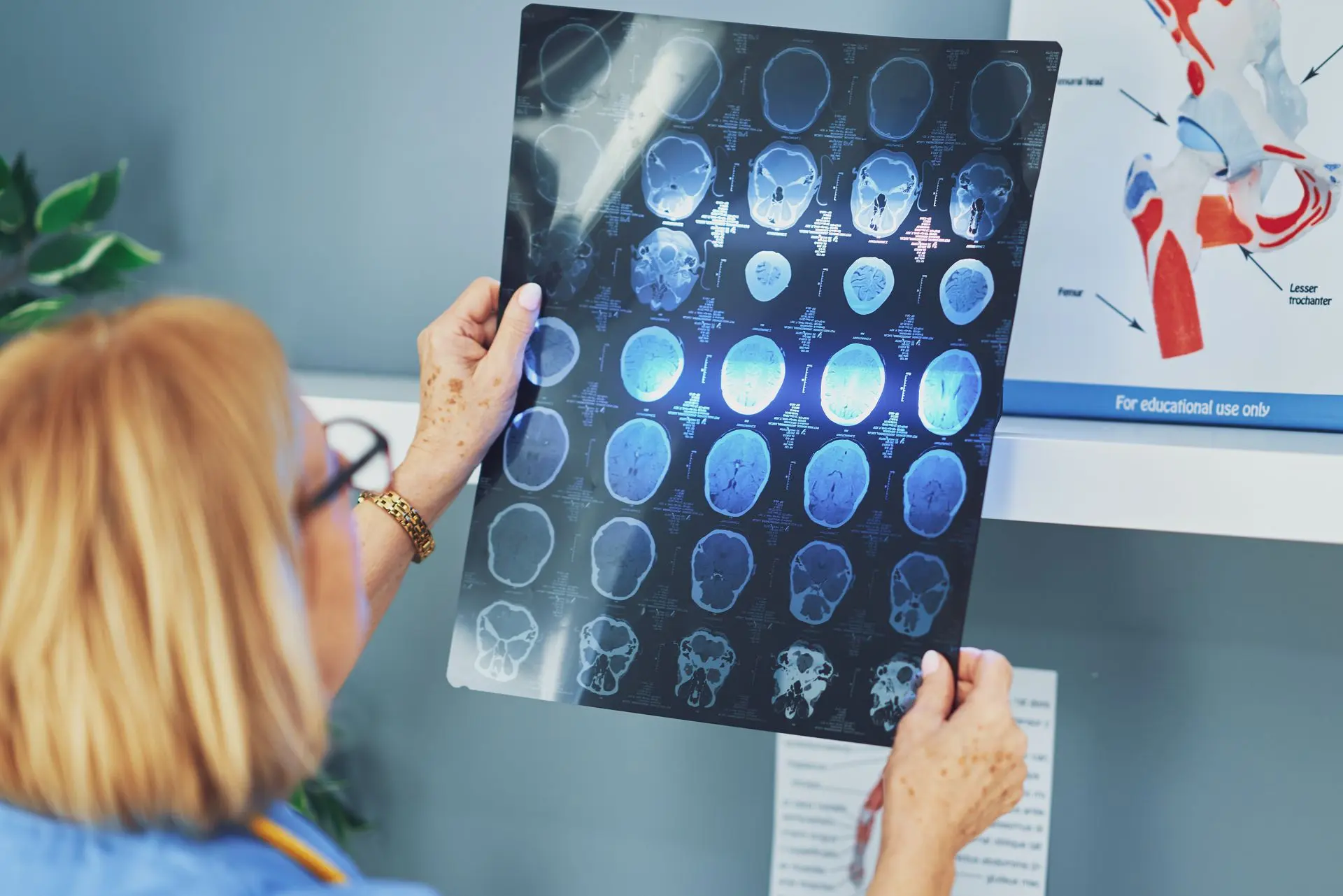Our Goal
We are working to make it easier to detect Alzheimer’s disease early,
predict who might get it, and track how it changes over time.
Our research focuses on finding biomarkers—simple signs in the body,
like changes in the blood or brain—that can tell us more about
Alzheimer’s.
Why Biomarkers Matter in Alzheimer’s Research
Biomarkers provide objective, quantifiable indicators of biological states and disease processes. In Alzheimer’s disease, they can:
Enable earlier and more accurate diagnosis
We provide tools and methods that help doctors detect Alzheimer’s disease in its early stages, even before major memory loss begins. Our advanced diagnostics include:
Biomarker tests (blood-based or imaging) that spot early changes in the brain
Support for primary care and neurology teams to make faster, more confident diagnoses
Helping patients get earlier access to support, planning, and care
Early diagnosis improves quality of life and opens the door to more treatment options.
Identify patients who may benefit most from new therapies
Not every patient responds to treatment in the same way. Our services help match the right patients with the right therapies, by:
Using biological markers to understand a person’s unique disease pattern
Helping doctors predict which patients are more likely to respond to certain Alzheimer’s drugs
Supporting personalized medicine—care tailored to the individual
This means patients can avoid treatments that won’t help and get access to new ones that may slow the disease.
Improve clinical trial design and success rates
Clinical trials for Alzheimer’s treatments are often complex and expensive. Our diagnostic tools and research services support faster, more effective trials by:
Selecting the right participants using validated biomarkers
Tracking how well treatments work with measurable, real-time data
Reducing trial failure rates by improving study design and outcome accuracy
This helps bring new treatments to patients sooner and improves the chances of success for promising drugs.
✽ Here are the main things we’re trying to do:
🎯Discover
What We’re Working On
Find Early Warning Signs
We want to discover biomarkers that can show if someone is starting to get Alzheimer’s—even before serious memory problems appear. Early diagnosis gives people more time to plan and get the help they need.
Predict Who Might Develop Alzheimer’s
Some people have mild memory problems, called MCI (mild cognitive impairment). Not everyone with MCI gets Alzheimer’s, but some do. We are looking for signs that can show who is more likely to develop the disease.
Track Changes Over Time
We are also working on ways to monitor how Alzheimer’s progresses. This helps doctors know if treatments are working and allows for better care during all stages of the disease.
Top queries answered
In this section, you can find answers to frequently asked questions efficiently.
Our company specializes in neurological consulting, patient care, and research development. We tailor our services to fit the unique needs of individuals and healthcare providers, helping them navigate the complexities of neurological health.
You can reach our neurology support team by emailing us or calling (44)20 3393 8531 . Our dedicated team is available 24/7 to assist with any inquiries or concerns related to neurological health.
We’re committed to providing timely and effective solutions to ensure your health needs are met.
We offer a comprehensive consultation policy for all patients. Appointments must be scheduled in advance, and cancellations require 24 hours' notice. Follow-up consultations are typically arranged within 5-7 business days of the initial visit.
One example of a large-scale initiative in this area is the AddNeuroMed project, a pan-European longitudinal research program focused on the discovery and validation of biomarkers for Alzheimer’s disease. Its scientific objectives included the development of improved experimental models for biomarker discovery, the identification of biomarkers suitable for early and accurate diagnosis, the prediction of disease progression—particularly in individuals with mild cognitive impairment (MCI)
DOI: 10.1111/j.1749-6632.2009.05064.x
Global Overview of Alzheimer’s Disease
Alzheimer’s disease is the most common cause of dementia worldwide, affecting over 55 million people as of 2024. It is a progressive neurodegenerative disorder characterized by memory loss, cognitive decline, and behavioral changes. The disease is marked by the accumulation of amyloid-beta plaques and tau tangles in the brain, along with neuronal degeneration and synaptic loss. Despite decades of research, there is no cure, but early diagnosis and intervention can improve quality of life. Current global efforts focus on identifying biomarkers for early detection, developing disease-modifying therapies, and improving care infrastructure. Major research initiatives in the U.S., Europe, and Asia are leveraging genomics, imaging, digital health tools, and AI to better understand the disease and personalize treatment.
Discover our
specialised treatment options
Looking for expert neurological care? We are here to help

